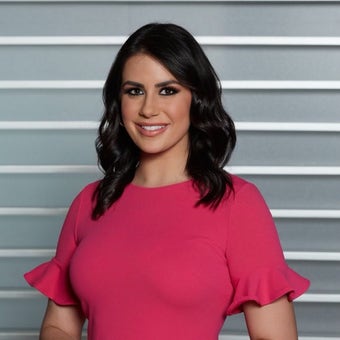Horse therapy helps veterans struggling with mental health
Operation Remount allows the veterans or first responders to keep the wild horse for themselves after they complete the six-week training course.
JAY EM, Wyo. – This Memorial Day, people across the country are honoring those who died while serving in the U.S. armed forces.
But, perhaps a less-talked-about issue remains: More veterans have died by suicide since the 9/11 attacks than in combat.
More than 30,000 American active military personnel and veterans involved in post-9/11 wars are estimated to have died by suicide – a figure at least four times greater than the 7,000 service members who were killed in combat during that time, according to research from Brown University and Boston University.
From 2006 to 2021, the U.S. Department of Veterans Affairs found that mental health needs increased by about 98%.
"We make them so strong that they live beyond their humanity in many ways, and see themselves as beyond the need for help until the bottom falls out," Sherman Gillums Jr., chief strategy and impact officer at the National Alliance on Mental Illness, told Fox News.
"Mental health and the illnesses that are associated with it when it becomes problematic doesn’t discriminate," Gillums added. "The only thing that varies is the ability to hide it and whether we ask for help."
MEMORIAL DAY SHOULD BE EVERY DAY IN AMERICA
The trauma some service members experience on the battlefield may lead to mental health issues – the unseen wounds of war.
"We have to remember the mission that we have our veterans do, which is a different mission than the rest of the country," said Dr. Tamara Campbell, the VA's acting executive director for the office of Mental Health and Suicide Prevention.
In the small town of Jay Em, Wyoming, there’s a program called Project Remount Corporation that pairs veterans or first responders with wild mustangs. The mustangs have PTSD and anxiety themselves, so the program offers reciprocal healing.
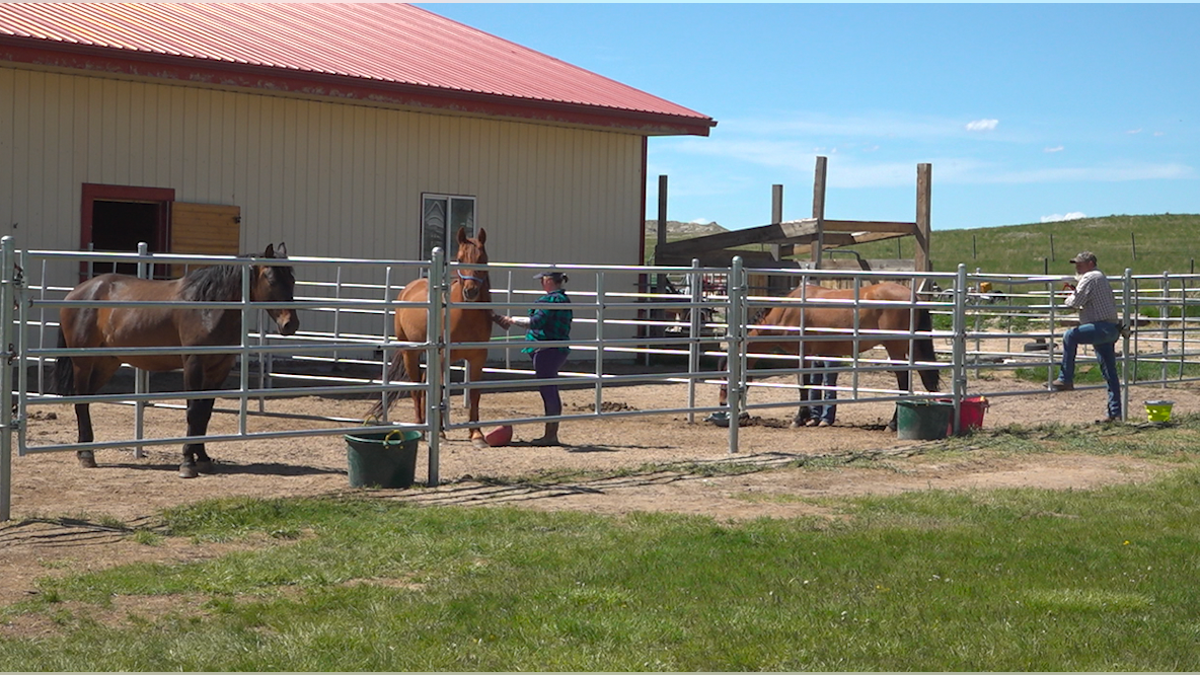
Operation Remount Corporation's ranch in Jay Em, Wyoming.
Kelly Alexander and his wife, Karen, were inspired to start Operation Remount based on his personal experiences. Kelly Alexander served for more than 20 years in Iraq and Afghanistan, and has struggled with his mental health after retirement.
He eventually found a program where he was matched up with a wild horse.
VA EXPANDS MENTAL HEALTH CARE FOR DISCHARGED VETERANS
"When you are in a 24-foot by 24-foot pen, you really can’t think of stuff that is outside of those railings," he said.
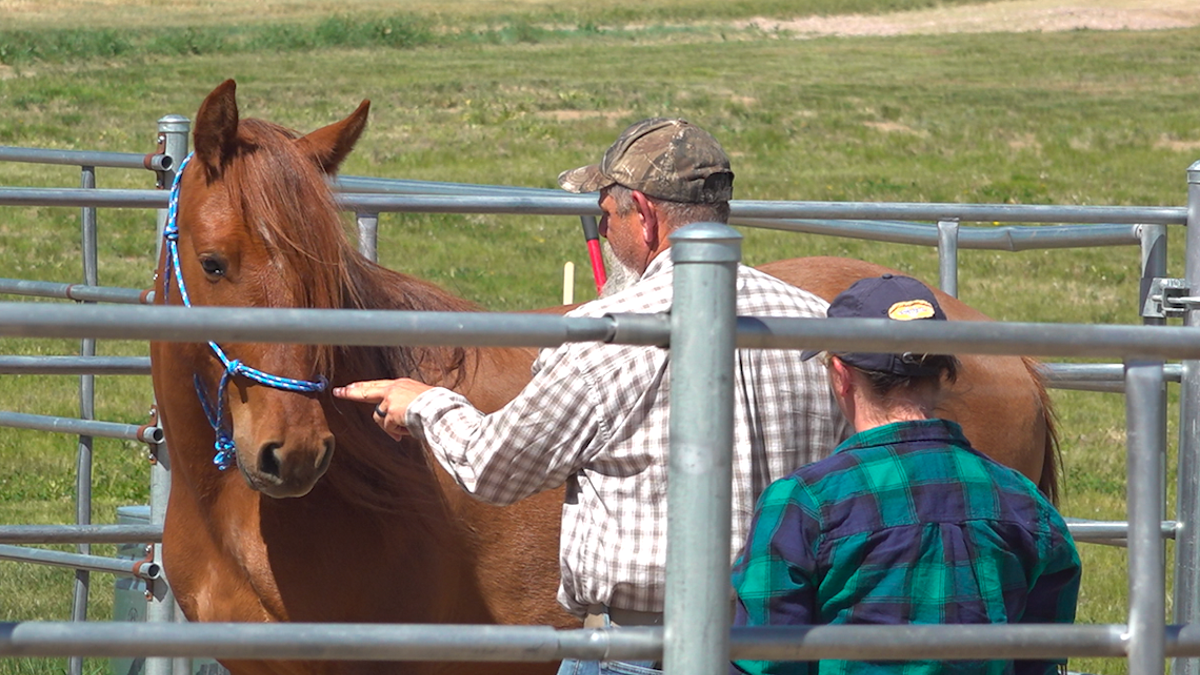
Kelly Alexander and Audra Smith work with a wild mustang.
Karen Alexander says it changed her husband's world.
"Working with the horses has brought him a new sense of purpose and has also provided him with some peace, so he wanted to provide this for others," she said.
VETERAN ON MISSION TO COMBAT SUICIDE IN MILITARY COMMUNITY
"Seeing how it affects others in a positive manner is probably even better than when I felt that from my own personal experience," said Kelly Alexander.
Now, the program helps people like Army veteran Alisshia Allen, who helped train Afghan Army members to be medics.
"Some of the things that I came across, seen, or had to encounter gave me severe anxiety, nightmares, depression," said Allen. "I had a hard time coming back and dealing with civilian life."
Same for former Air Force medic Audra Smith.
"I wanted to come out here so I could keep working on myself and keep working on those anxieties and the mindfulness and all that stuff," said Smith.
The trust built between the human and the horse allows veterans to slow down and be in the moment.
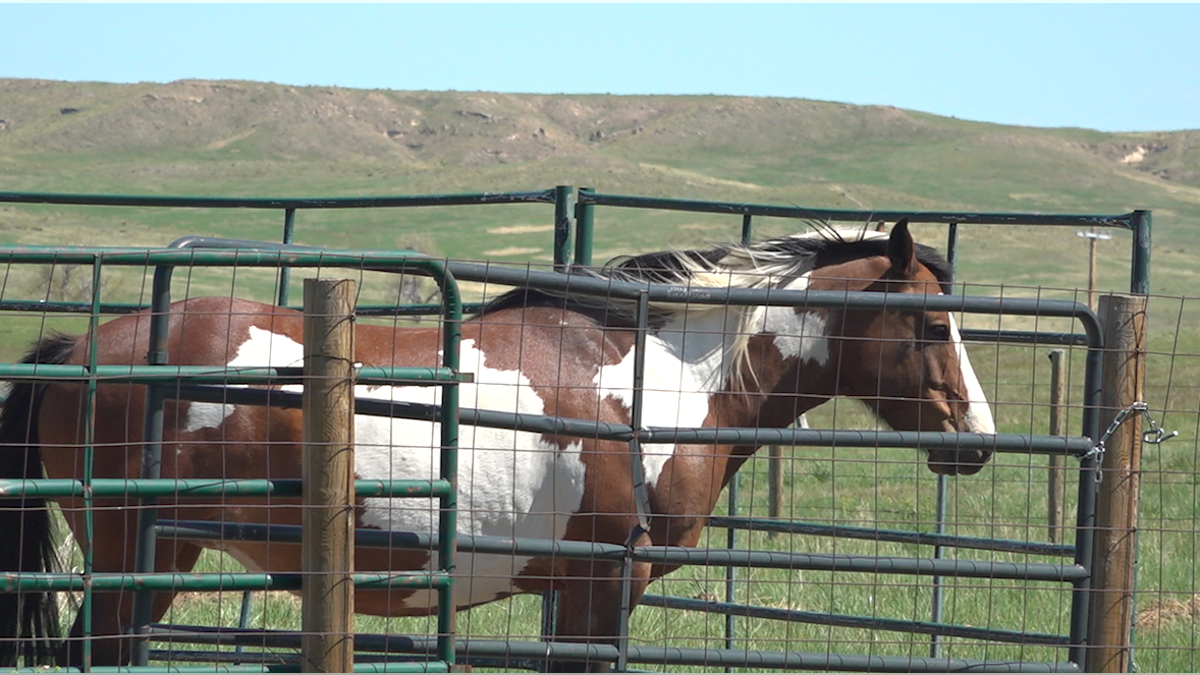
Iggy the wild mustang.
"They were pulled from their homes just like veterans, when we leave the service we're pulled from our herd, from our family. And to be able to come here, they are kind of our herd again, they’re our family," said Smith.
Operation Remount allows the veterans or first responders to keep the wild horse for themselves after they complete the six-week course. The Alexanders hope to have eight vets and first responders on the ranch next year, and to continue to grow.
When it comes to veterans struggling with mental health, the VA offers services that are broad and comprehensive.
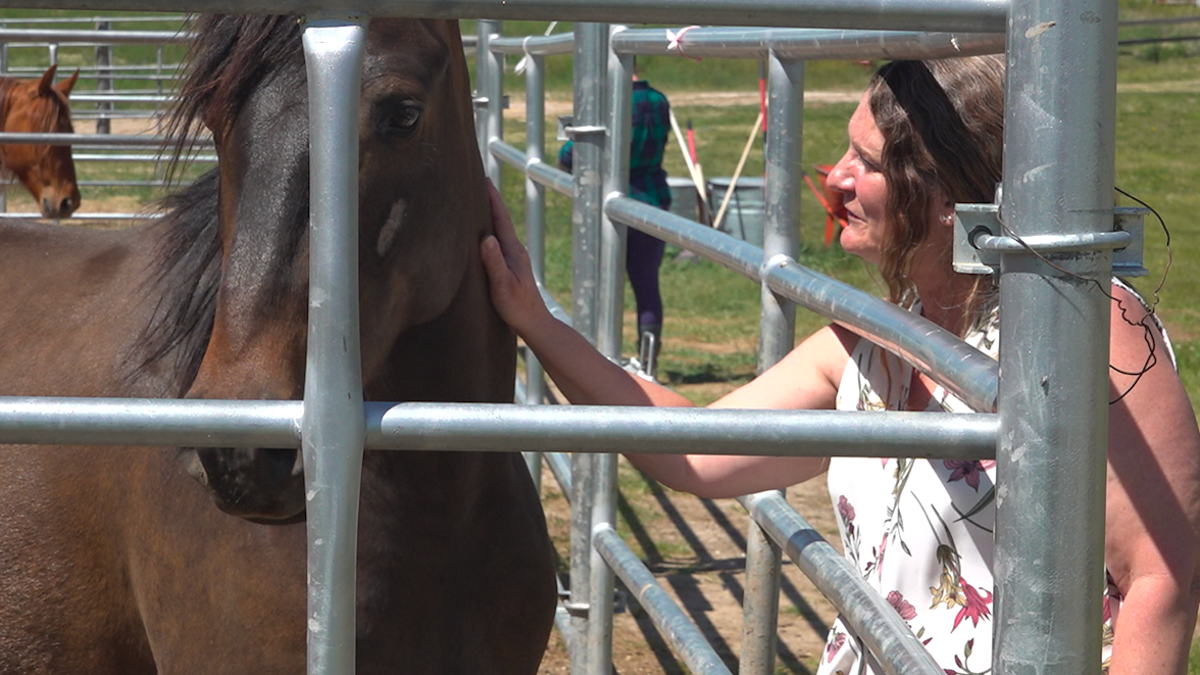
Karen Alexander pets one of the horses on her ranch in Jay Em.
"Our evidence-based treatments work, and we will do whatever we need to do to get you to a place of safety and the quality of life that you’ve earned," said Campbell.
If you are a veteran in crisis or concerned about one, call the Veterans Crisis Line at 1-800-273-8255 and press 1.
